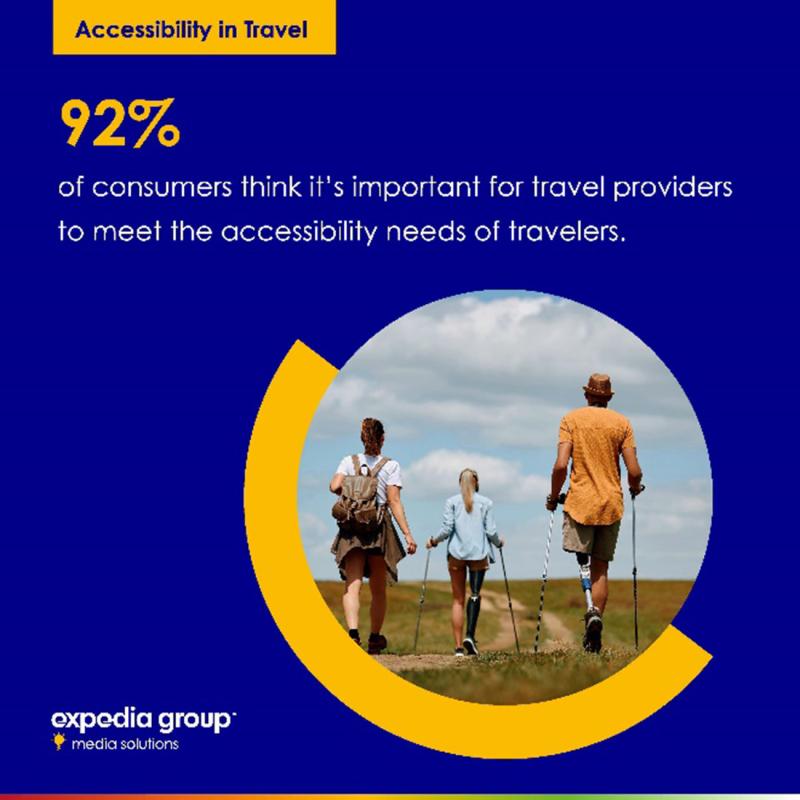Sharing findings from its latest survey, Expedia Group Media Solutions has revealed that consumers are paying attention to how inclusive travel offerings are when searching and booking. The bottom line? While the travel industry has made strides, there is a need for continued improvement across the industry. Only 54 percent of consumers said they have seen options that are accessible to all abilities, and just 52 percent have seen options that are inclusive of all types of travelers.
Travel brands’ commitment to inclusion, diversity and accessibility is influencing consumers’ purchasing decisions, with seven in 10 consumers saying they are willing to pay more when making a travel choice that is more inclusive to all types of travelers. Furthermore, 78 percent of consumers said they’ve made a travel choice based on promotions or ads that they felt represented them through messaging or visuals.
The “Inclusive Travel Insights Report: Understanding Traveler Values & Opportunities for Marketers” builds on recent findings about environmentally responsible travel highlighted in the sustainable travel study, revealing that people are increasingly seeking ways to have more meaningful travel experiences. Conducted in partnership with Wakefield Research, the study included an online survey of 11,000 representative, general population adults ages 18+ in 11 global markets—Australia, Brazil, Canada, China, France, Germany, India, Japan, Mexico, the U.K. and the U.S.—fielded between February 11 and March 6, 2022.
When it comes to accessibility in travel, 92 percent of consumers agree that it’s important for travel providers to meet the accessibility needs of all travelers. Older generations are more likely to believe that accessibility is very important when making travel decisions, among 54 percent of Baby Boomers and Generation X, compared to 49 percent of the general population.

Responding to questions about diversity in travel, seven in 10 consumers said they would choose a destination, lodging or transportation option that is more inclusive of all types of travelers, even if it’s more expensive. As many as 78 percent have made a travel choice based on representation in travel advertising, promotions or ads they felt represented them through messaging or visuals; and for Millennials, this figure is the highest (84 percent).
A majority (64 percent) of consumers said they are interested in learning more about travel options that support local cultures and communities. More than two in five consumers have purchased from local communities and/or minority groups while traveling in the past two years, while 46 percent visited local cultural or historical sites. Nearly two-thirds of consumers would choose a travel option that supports local cultures and communities, even if it was more expensive.
The survey revealed that key marketing takeaways include being thoughtful in representing a range of perspectives and assembling diverse imagery, recognizing that diversity can include races, genders, ages, families, couples, abilities, activities and more.
Other marketing insights recommend the use of inclusive, welcoming, and respectful language across all marketing and travel listings, while also highlighting amenities and accessibility for travelers of all backgrounds and all abilities; and when using video, feature closed captioning and subtitles, and use legible fonts and contrasting colors to ensure content can be read by all.
For more information, visit www.advertising.expedia.com.
Related Stories
MMGY Digs Into Challenges Faced by Travelers With Disabilities
International Tourism Showing Strong Recovery Amid Challenges
WTTC: 412,000 Travel Jobs Across the U.S. to Remain Unfilled